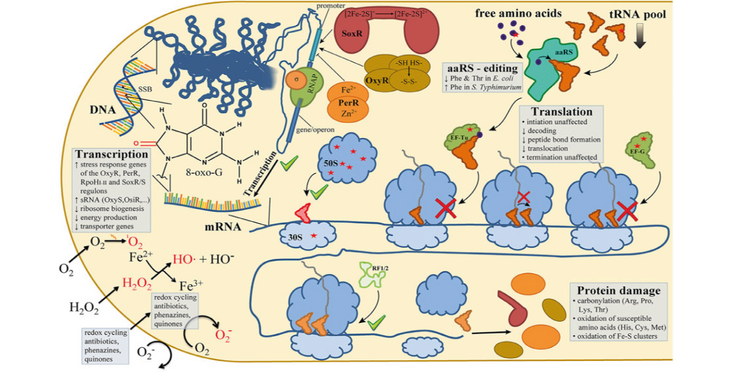A review article by the Polacek lab (DCBP, University of Bern) on "Oxidative Stress in Bacteria and the Central Dogma of Molecular Biology" has been published in Frontiers in Molecular Biosciences. The review is part of a research topic collection of articles on "Oxidative Damage of RNA: Structure, Function, and Biological Implications - From Nucleotides to Short and Long RNAs in Chemistry and Biology".
Abstract
Ever since the “great oxidation event,” Earth’s cellular life forms had to cope with the danger of reactive oxygen species (ROS) affecting the integrity of biomolecules and hampering cellular metabolism circuits. Consequently, increasing ROS levels in the biosphere represented growing stress levels and thus shaped the evolution of species. Whether the ROS were produced endogenously or exogenously, different systems evolved to remove the ROS and repair the damage they inflicted. If ROS outweigh the cell’s capacity to remove the threat, we speak of oxidative stress. The injuries through oxidative stress in cells are diverse. This article reviews the damage oxidative stress imposes on the different steps of the central dogma of molecular biology in bacteria, focusing in particular on the RNA machines involved in transcription and translation.
Read the Review in Frontiers in Molecular Biosciences (Open Access)
Abstract, figure and title from Fasnacht and Polacek (2021) Frontiers in Molecular Biosciences published under a CC BY 4.0 license.
